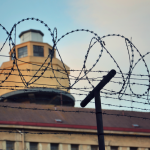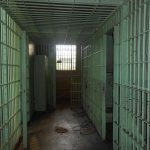UN to Inspect Australian Prisons

United Nations Inspectors will have ‘unfettered access’ to Australian-run detention centres when they visit Australia in the coming months.
It will be the first time inspectors have visited Australia. Such routine visits are one of the obligations of the Optional Protocol to the Convention Against Torture and Other Cruel, Inhuman or Degrading Treatment or Punishment (OPCAT), an international instrument which Australia ratified in 2017. OPCAT is designed to prevent the mistreatment of people in detention, through inspection processes.
The inspectors have a broad brief and can elect to conduct inspections of prisons, youth detention, immigration detention, mental health facilities, police cells and social care environments such as aged care and disability homes.
Concern about the treatment of prisoners and detainees
The UN subcommittee overseeing inspections has said it is particularly concerned about marginal groups in society which are often subject to poorer treatment in detention for various reasons including disability, race, age and infirmity.
Australia’s police stations, prisons and youth detention facilities have been extensively criticised for the abuse that occurs behind closed doors. As a nation we have a long history and a well-documented record of atrocities including preventable indigenous deaths in custody, and the horrendous treatment of children, as well as people with a disability.
Last year a survey of 14 prisons in Western Australia and Queensland by Human Rights Watch found prisoners with disabilities are being locked in solitary confinement for prolonged periods, living in nappies, urinating in bottles and suffering physical and sexual abuse, including at the hands of carers.
Now, the current royal commission into aged care quality and safety, is hearing heartbreaking stories and evidence of mistreatment of the elderly.
Australia’s appalling international reputation
International human rights organisations, legal groups, other governments as well as the UN have also long condemned Australia’s immigration policies and the state of our detention centres.
In fact, The Australian Human Rights Commission (AHRC) has just released a report on Australia’s detention centres, which it describes as “more and more like prison” and “unlike similar operations any other liberal democracy.”
Immigration detention like ‘prison’
The report highlights the fact that people are being held for an average of about 500 days when there is no valid justification for this under international law. Furthermore, five hundred days is far longer than any other jurisdiction.
By comparison, Canada’s average length of closed immigration detention didn’t exceed one month between 2012-13 and 2017-18. UK statistics show that 80% of the people leaving detention between 2012 and 2017 had been held for two months or less.
The AHRC report is based on interviews with detainees. It also denounces recent refurbishments which make facilities more like prisons, as well as the harsh treatment of detainees. It found that the use of restraints during escorts – including for medical appointments – had become routine and potentially disproportionate.
Australia’s offshore detention centres are outside the mandate for the upcoming visit by the UN, but the regional processing centre on Nauru will be inspected for a second time this year. Nauru was previously inspected in 2015. It has yet to respond to the inspectors’ findings, and has not made the report public.
Just another report?
After each visit, UN inspectors will write a detailed report for the government, which it is then encouraged to release. However, while the UN inspectors can highlight poor conditions and mistreatment of detainees, ultimately it is up the government to take affirmative action.
Given that numerous Australian facilities have been subjected to countless investigations, reports, inquiries and royal commissions all eyes will be on the UN inspectors to see if they can effect change that has otherwise been very slow in coming right across the nation.
While the topic of the treatment of criminals behind bars can be a contentious one, by ratifying OPCAT, Australia has made a commitment to having its policies, procedures, and duty of care practices put under the microscope.
The other factor in the equation is that there are many people in Australian prisons and detention facilities who are there through unfortunate circumstances, who suffer mental illness, addiction or emotional trauma, as well as a large number of immigrants and children, who should not necessarily be locked up.
Many Australians are sickened by what they hear occurring behind the high security fences, but feel that changing the status quo is virtually impossible in a system that’s largely privately run, at significant taxpayer cost, by operators whose reputations are sullied by allegations of fraud corruption and mismanagement (and whose employees have been accused of bulling and assault) and which are accountable to various levels of Australian Government all of which seem content to turn a blind eye.







